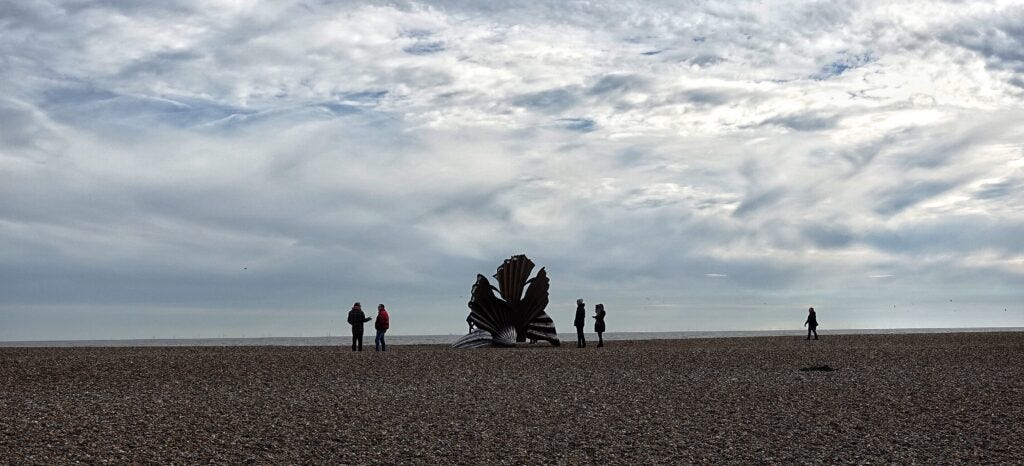Friday 18 December, 2020
Seascape
Aldeburgh, Suffolk
My Quarantine Diary
Find it here.
Quote of the Day
“We have the power to do any damn fool thing we want to do, and we seem to do it every ten minutes.”
Senator William Fulbright, 1952.
Musical alternative to the morning’s radio news
Status Quo | Whatever You Want
The cognoscenti are sometimes dismissive about this, but I think its driving energy makes it a quintessential example of classic rock. And I see it’s racked up over 15m views on YouTube, so it must be doing something right. Anyway, if you want to annoy the neighbours, turn up the volume.
Long Read of the Day
The Scars of Democracy: Theodor Adorno and the crises of liberalism.
Interesting essay by the Harvard historian Peter E. Gordon in The Nation on “Aspects of the new right-wing extremism”, a recently re-discovered lecture Theodor Adorno gave in Vienna on April 6, 1967.
The lecture, writes Gordon,
spoke to the general question of what fascism is and how we should think about challenges to liberal democracy that come from the extreme right. Liberal democracies, Adorno argued, are by their nature fragile; they are riven with contradictions and vulnerable to systemic abuse, and their stated ideals are so frequently violated in practice that they awaken resentment, opposition, and a yearning for extrasystemic solutions. Those who defend democracy must confront the persistent inequalities that breed this resentment and that prevent democracy from becoming what it claims to be.
Readers of Adorno’s lecture today,
cannot help but recognize in his warnings a reflection of the current global situation. In Germany a neofascist resurgence has once again taken root with Alternative für Deutschland, a far-right and anti-immigrant movement that in 2017 secured 94 seats in the Bundestag to become the body’s third-largest party. Across Europe and around the rest of the world, this trend in neofascist or authoritarian politics is now ascendant (in Turkey, Israel, India, Brazil, Russia, Hungary, Poland, and the United States). The extravagant notion that the past is utterly past—that its alterity inhibits us from drawing any analogies across differences of time and space—will hold us in its grip only if we see history as broken into islands, each one obeying laws entirely its own.
Augmented Reality and the Surveillance Society
Short, punchy and really insightful opinion piece by Mark Pesce in IEEE Spectrum about the potential — and dangers — of Augmented Reality
First articulated in a 1965 white paper by Ivan Sutherland, titled “The Ultimate Display,” augmented reality (AR) lay beyond our technical capacities for 50 years. That changed when smartphones began providing people with a combination of cheap sensors, powerful processors, and high-bandwidth networking—the trifecta needed for AR to generate its spatial illusions. Among today’s emerging technologies, AR stands out as particularly demanding—for computational power, for sensed data, and, I’d argue, for attention to the danger it poses.
Unlike virtual-reality (VR) gear, which creates for the user a completely synthetic experience, AR gear adds to the user’s perception of her environment. To do that effectively, AR systems need to know where in space the user is located.
And there’s where the dangers start. Facebook, for example, is working on AR spectacles. When these glasses come to market in a few years, Pesce thinks that they will
transform their users into data-gathering minions for Facebook. Tens, then hundreds of millions of these AR spectacles will be mapping the contours of the world, along with all of its people, pets, possessions, and peccadilloes. The prospect of such intensive surveillance at planetary scale poses some tough questions about who will be doing all this watching and why.
Yeah. And who exactly will be asking these ‘tough’ questions?




